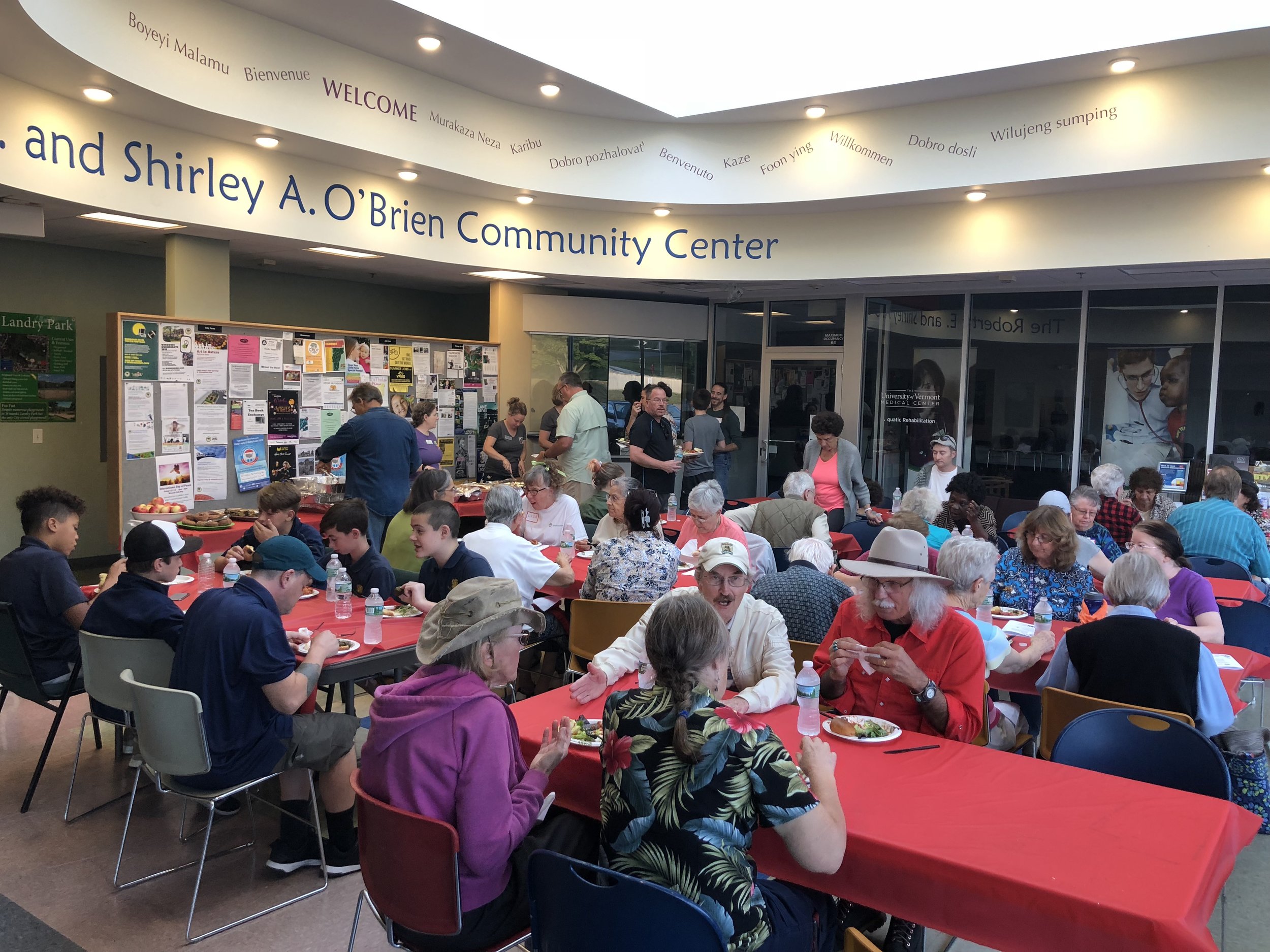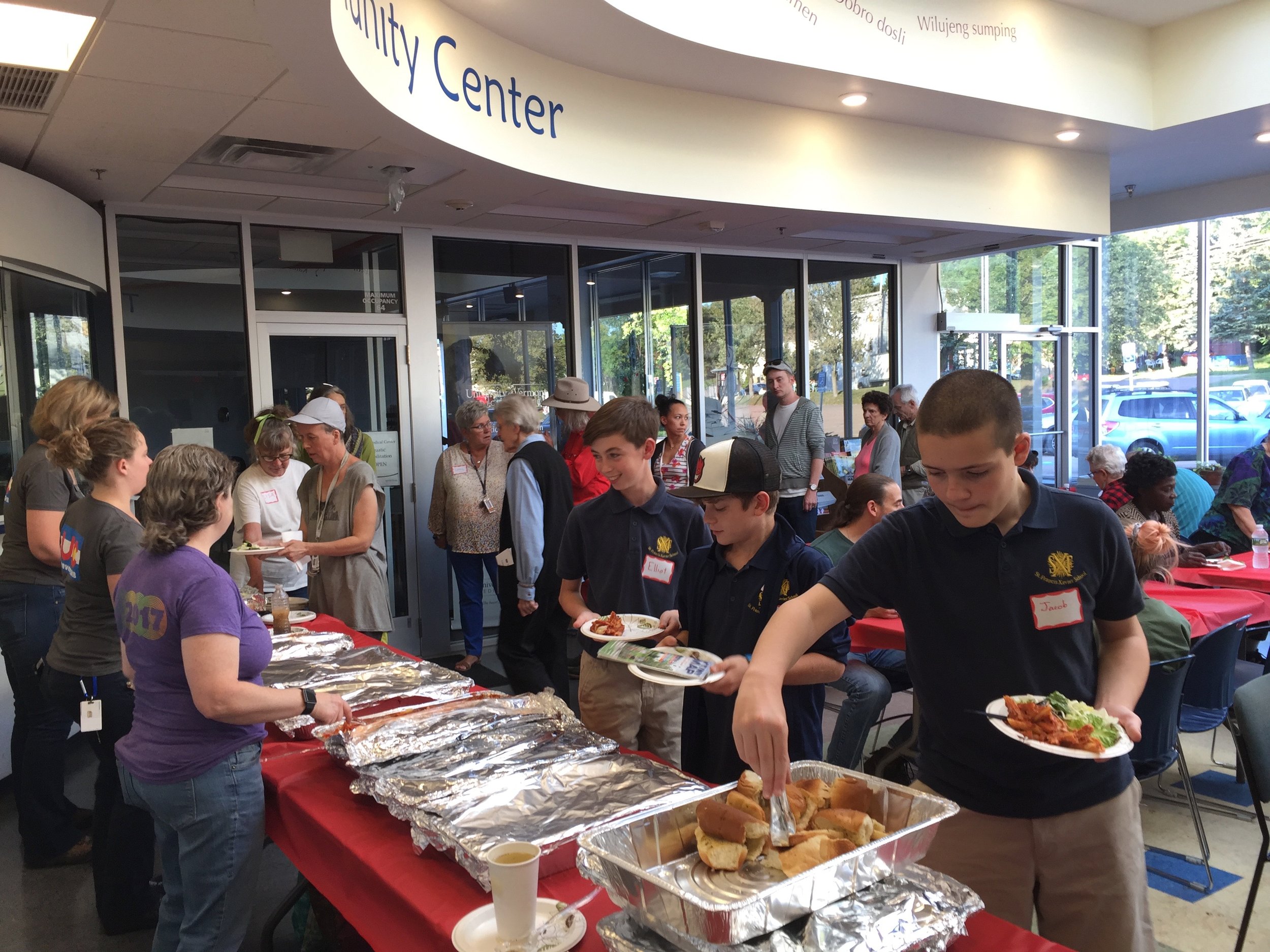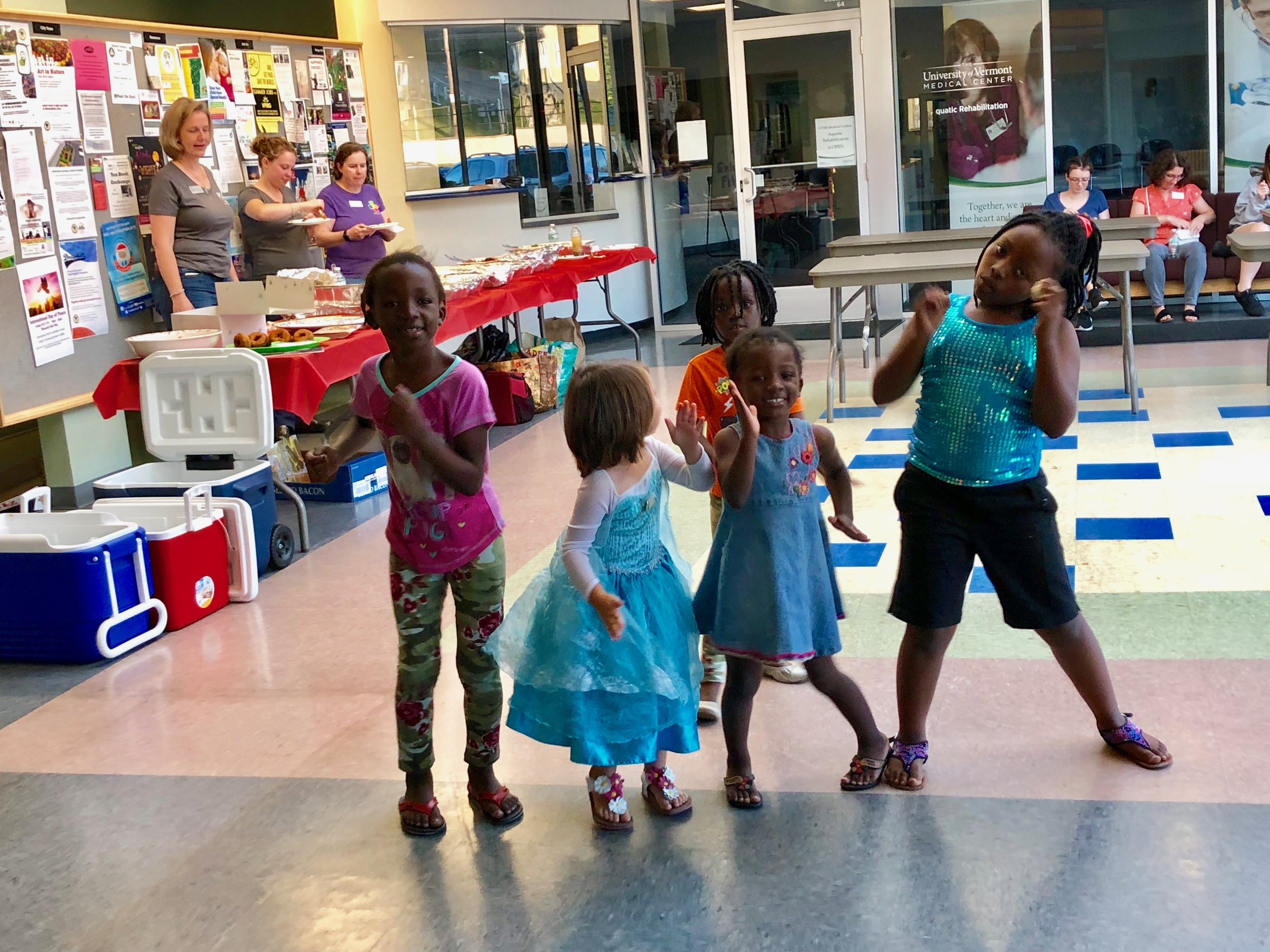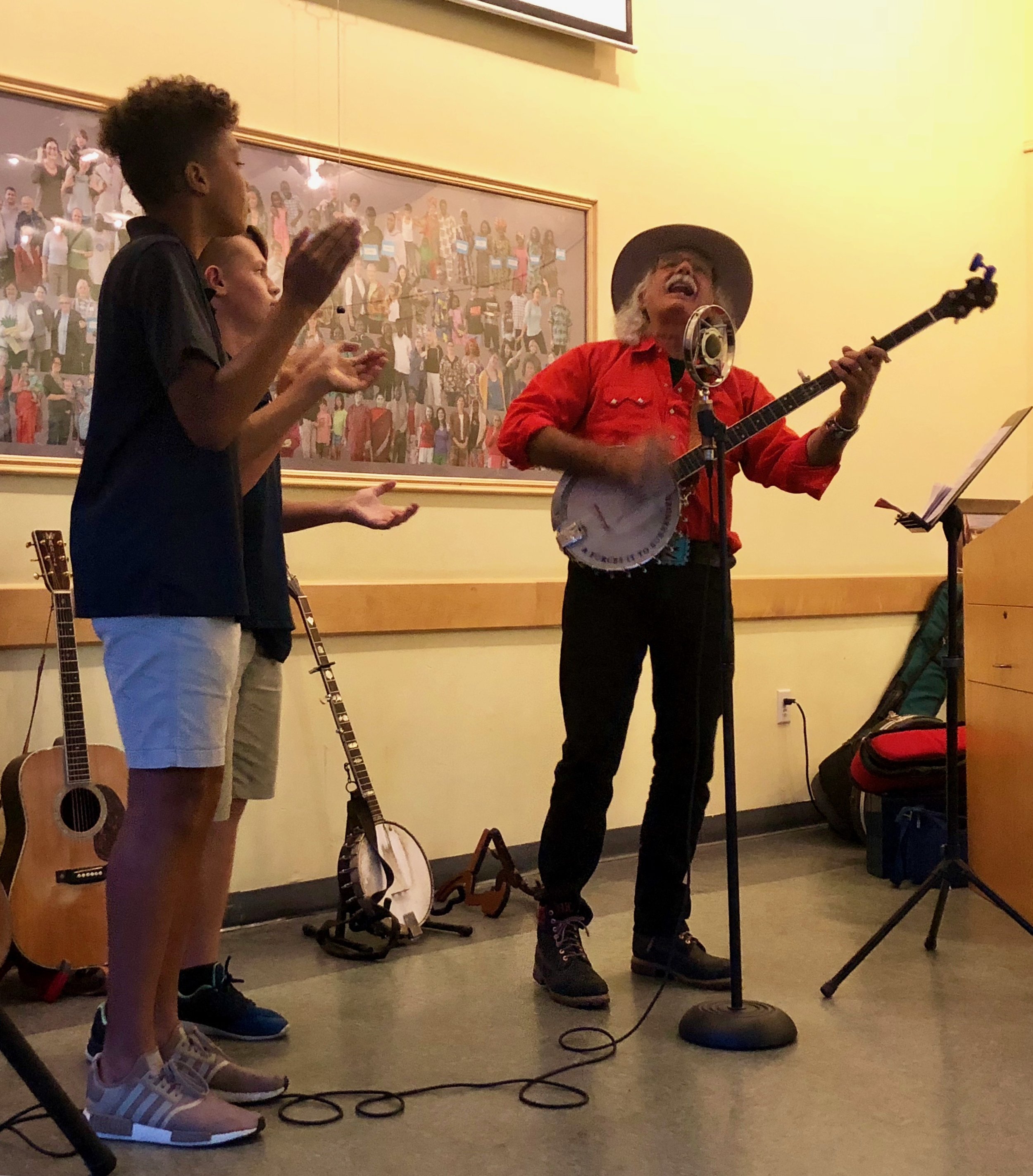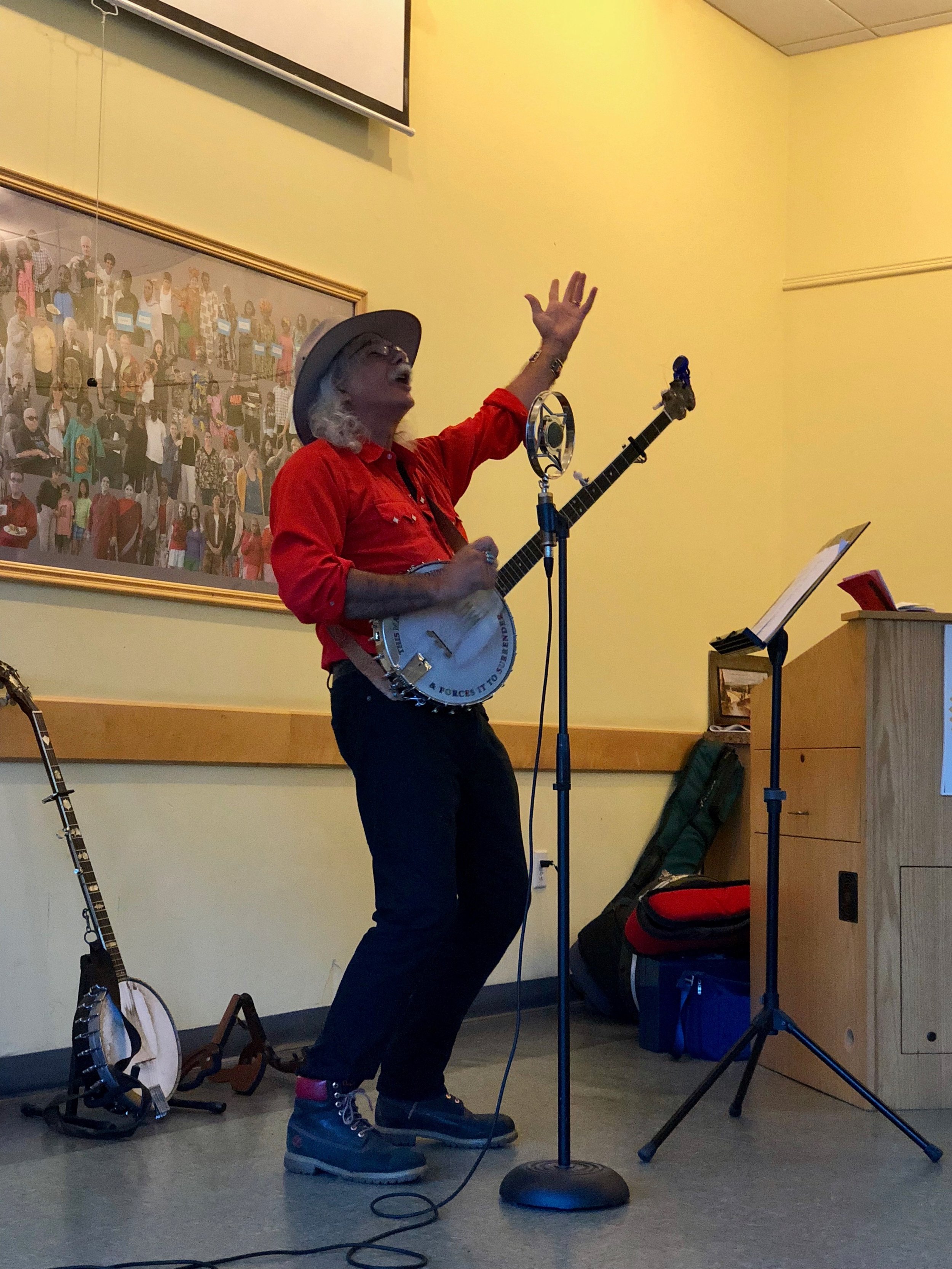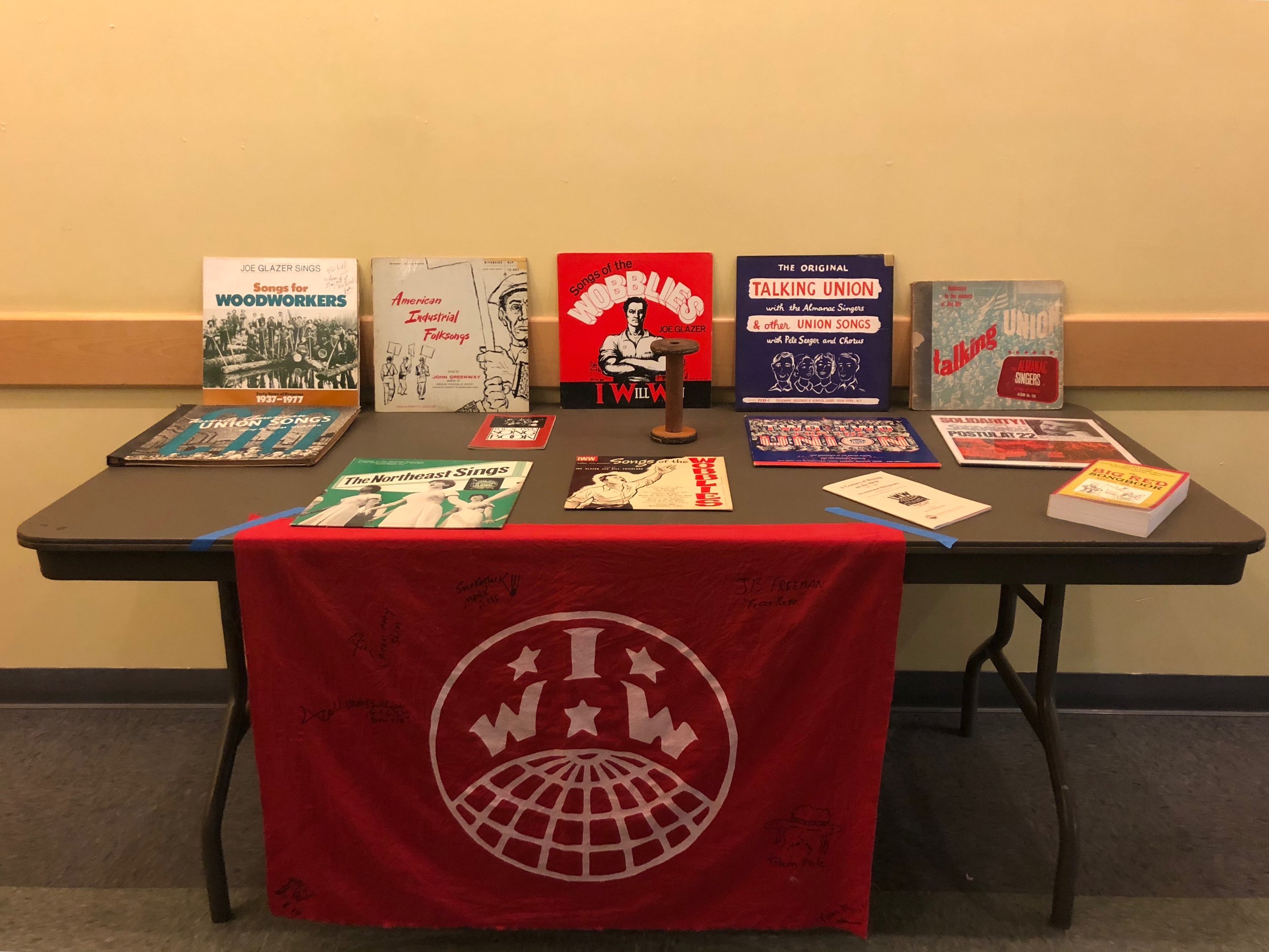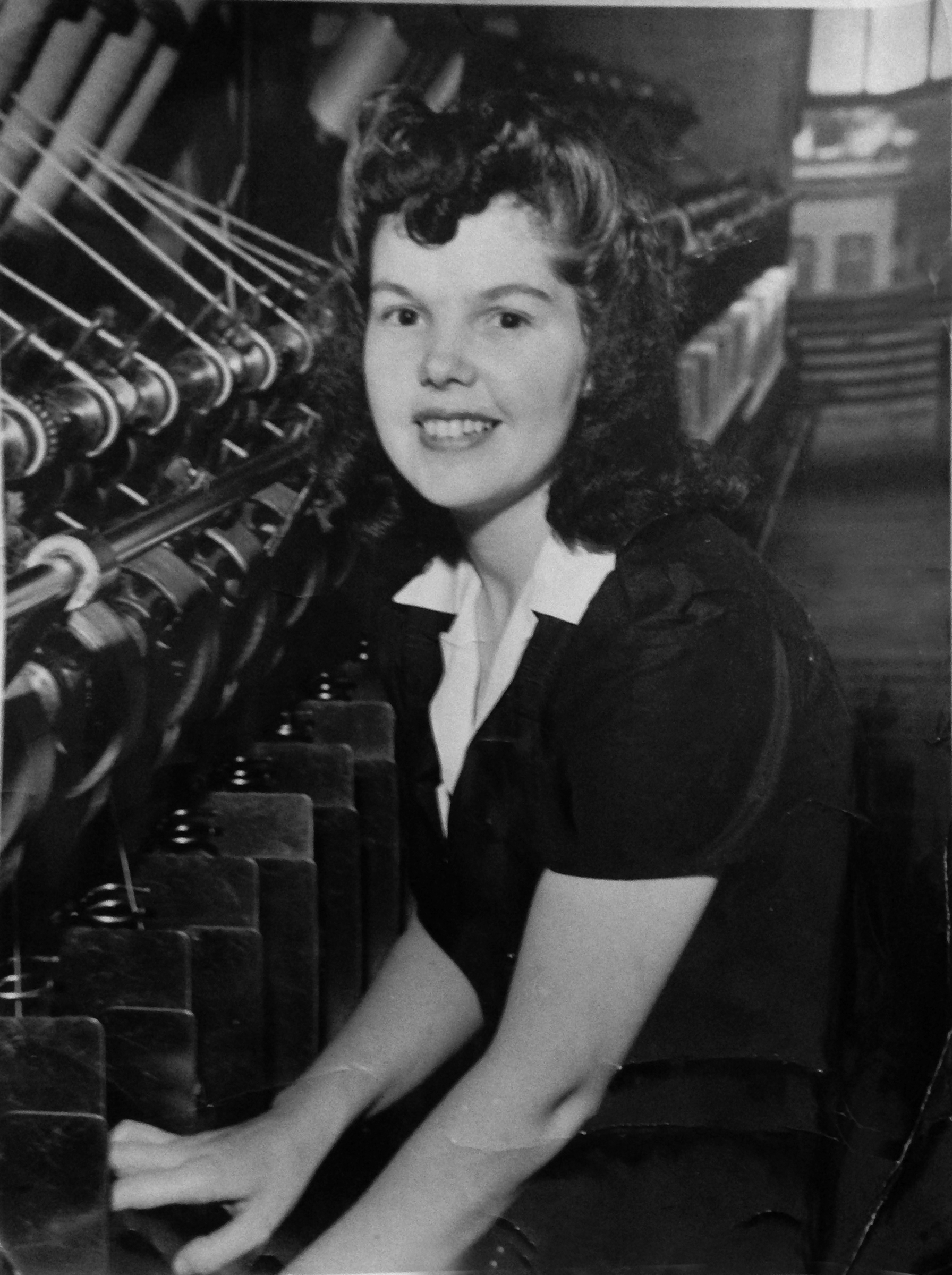Museum Hosts Union Train Concert and Community Dinner
/by Barbara Banchik
The Heritage Winooski Mill Museum, along with special guest Rik Palieri, presented Union Train: a Celebration of American Labor History on the evening of September 7th. The event combined storytelling, history, live music, and sing-alongs to engage and educate the audience.
The Museum collaborated with students and teachers throughout Winooski to organize the program in support of a Vermont Humanities Council (VHC) grant for a community-wide reading of Katherine Paterson’s historical fiction novel, Bread and Roses, Too. The novel tells the story of the 1912 “Bread and Roses” strike in textile mills in Lawrence, Massachusetts. Earlier in the week, Palieri visited St. Francis Xavier School to discuss the novel with students and to teach them labor songs.
Students, teachers, community organizers, and volunteers welcomed over sixty people to the O’Brien Community Center for the event. Guests of all ages and backgrounds gathered together for a convivial and delicious community dinner of baked ziti, salad, and apple cider donuts. After proceeding into the multipurpose room, guests had the chance to look at several objects and artifacts Palieri had put on display: banjos, guitars, CDs, records, an IWW flag, anthologies, and various historical pamphlets.
As soon as Palieri, wearing his signature cowboy hat, began strumming his banjo, everyone in the room couldn’t help but start tapping their toes, bobbing their head, or clapping along to the lively rhythm. To the delight of both performer and audience members alike, the music inspired a group of children to dance in the lobby and the aisle between the seats.
Palieri treated the audience as old friends and spoke passionately about the history behind each song he performed, most of which he learned first-hand from Pete Seeger, Utah Phillips, Sis Cunningham, and Bill Kern. Before singing “Peg and Awl” he discussed the disappearance of hand-production and the cottage industry as a result of the Industrial Revolution. He alerted the audience to the militant sound of “Hold the Fort”, emphasized how hard our ancestors fought so we could have our rights in “Eight-Hour Day”, and connected the event to the novel by singing “Bread and Roses”. The room went quiet during his moving rendition of “Babies in the Mill”.
The highlight of the night was when Palieri invited students from St. Francis Xavier to the stage to perform “We Shall Not Be Moved” with him. He joined them in a newly-written verse protesting homework.
At the end of the program, members of the audience competed in a game of trivia with questions derived from Palieri’s performance. If they answered a question correctly they received a free copy of Bread and Roses, Too. Keeping true to the mission of both the Mill Museum and the VHC, Union Train brought members of the community together for a night of fun and educational exposure to Vermont, and the nation’s cultural history.
Barbara Banchik is a sophomore at the University of Vermont, majoring in art history and minoring in anthropology. Barbara is interning at HWMM this fall semester as part of the Backstory internship program.
Please contact Rik Palieri directly at rikpalieri.com if you are interested in bringing the Union Train program to your school or organization.
The Heritage Winooski Mill Museum would like to thank the following organizations for their collaboration in making Union Train possible: The Winooski Memorial Library, The Winooski Middle School, St. Francis Xavier School, The Winooski Peace Initiative, and volunteers from PCC. Special thanks to Heritage Automotive for underwriting the community dinner.


